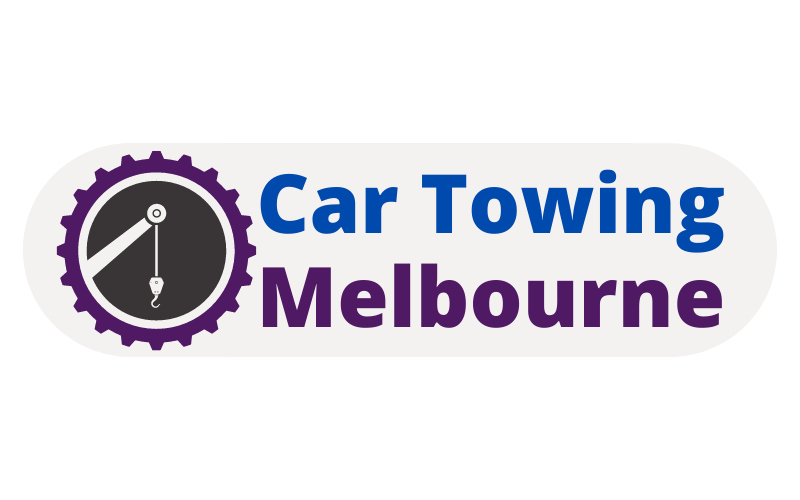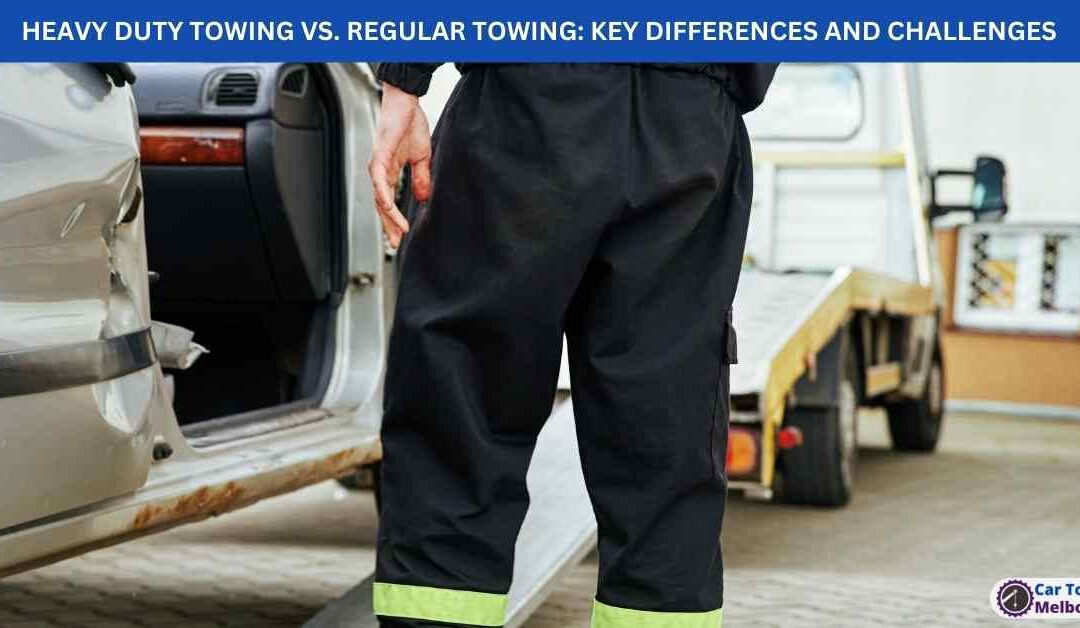Towing services are essential for rescuing stranded or disabled vehicles on the road. However, not all towing jobs are the same. Some vehicles require heavy-duty towing, while others can be handled by regular towing services. Understanding the key differences between both is crucial for successful recovery operations.
Professional towing companies offer reliable towing solutions for every type of vehicle. Each type of towing requires skilled personnel and equipment. In this blog, we will explore the nuances of heavy-duty towing, challenges faced by tow truck operators, regular towing and how to choose the right towing service for your specific needs.
What Is Heavy Duty Towing?
Heavy-duty towing is a specialized towing service designed to handle larger, heavier vehicles and equipment. These can include commercial trucks, buses, RVs, construction equipment, and other oversized vehicles. Heavy-duty tow trucks are equipped with powerful winches, reinforced towing cables, and hydraulics that can handle substantial weights.
They are specifically designed to provide robust towing solutions for vehicles that exceed the capabilities of regular tow trucks.
What Is Regular Towing?
On the other hand, regular towing primarily focuses on lighter vehicles such as cars, motorcycles, and small trucks. Regular tow trucks are commonly used for roadside assistance, recovering vehicles from accidents, or transporting smaller vehicles to repair shops.
They are not built to handle the immense weight and size of heavy-duty vehicles and are more suited for everyday towing needs.
Key Differences Between Heavy Duty Towing And Regular Towing
1. Vehicle Size And Weight
The most obvious difference between heavy-duty and regular towing is the size and weight of the vehicles they can handle. Heavy-duty tow trucks have the capacity to tow vehicles weighing several tons, while regular tow trucks are typically limited to lighter loads.
2. Towing Equipment
Heavy towing requires specialized equipment to handle the extra weight and challenges associated with large vehicles. These tow trucks feature sturdy winches, heavy-duty towing cables, and hydraulic systems that can withstand the pressure of towing substantial loads.
Contrary to this, regular tow trucks, while efficient for smaller vehicles, lack the heavy-duty components necessary for larger tasks.
3. Training And Expertise
Operating a heavy-duty tow truck demands specialized training and expertise. Tow operators dealing with heavy-duty vehicles must undergo rigorous training to ensure they can handle the challenges safely and efficiently. Regular towing, while also requiring skilled operators, involves less complex procedures compared to heavy towing.
4. Towing Cost
Due to the complexity of heavy-duty towing, the cost is generally higher than regular towing services. The specialized equipment, training, and manpower required for it contribute to the increased expense. Regular towing, being less resource-intensive, is usually more budget-friendly.
Challenges In Heavy-Duty Towing
Heavy-duty towing comes with its own set of challenges that tow operators need to address effectively. Some of the common challenges include:
Safety Concerns
Handling heavy-duty vehicles can be inherently dangerous. Tow operators must prioritize safety protocols to prevent accidents during the towing process. This includes proper securing of the load, using high-quality equipment, and adhering to industry safety standards.
Traffic Management
Towing large vehicles can disrupt traffic flow significantly. Tow operators must be skilled in managing traffic to minimize inconvenience and maintain road safety.
Equipment Maintenance
Maintaining heavy-duty tow trucks and equipment is crucial to ensure smooth operations. Regular maintenance and inspections are necessary to prevent breakdowns during critical towing tasks.
Challenges In Regular Towing
Let’s take a look at the difficult situations that may arise during regular towing.
Ensuring Vehicle Compatibility
Regular towing companies must ensure that their equipment is compatible with a wide range of vehicles to avoid causing damage during towing.
Dealing With Abandoned Parked Vehicles
Regular towing services often encounter abandoned or illegally parked vehicles, which requires tactful handling to avoid disputes.
Addressing Time Sensitivity
In certain situations, regular towing may involve time-sensitive responses, such as clearing accident scenes promptly.
Best Practices For Towing
To excel in the field of towing, adhere to the following practices:
Rigorous Training And Certification
Always look for towing companies that hire expert and certified professionals. Towing operators should undergo rigorous training and obtain proper certification to handle complex towing jobs safely.
Properly Maintained Equipment
Regular maintenance of all types of tow trucks and equipment is crucial to ensure their reliability and safety during towing operations.
Safety Precautions And Risk Mitigation
Towing companies often have to deal with complex situations after incidents. Implementing stringent safety protocols and risk mitigation strategies is essential when dealing with heavy loads and hazardous materials.
Timely Response And Customer Service
Emergencies can happen at any time. That’s why it is essential to always have a reliable and 24-hour towing company by your side. These service providers should prioritize prompt responses and provide excellent customer service to ensure customer satisfaction.
About Us
Welcome to Car Towing Melbourne, your reliable towing service provider in Melbourne, and surrounding areas. With decades of experience, we are the go-to experts for both individuals and businesses, offering a versatile fleet of over 40 vehicles.
From emergency roadside services to heavy-duty towing and equipment hauling, we’ve got you covered. Contact us now for roadside assistance.
Now Car Towing Melbourne is available in Macleod Victoria 3085, Australia.
Car Towing Melbourne
(03) 7037 7625

